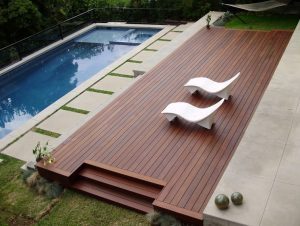Do Soundproof Curtains Work
There are a lot of ways us custom home builders can soundproof a room while building or remodeling a home. But very few once a home is already done. One of the simplest, easiest and cheapest solutions for soundproofing a room is adding soundproof curtains. They’re pretty inexpensive, easy to hang up, and come in a wide variety of sizes and styles that fit almost any decor. But do soundproof curtains work?
In our experience, soundproof curtains are perfect for sound deadening a room and work fantastic for normal, everyday noises. But the term soundproof is a huge overstatement. Soundproof curtains are great for muffling sound. They reduce echoing in the roof and will lower the decibel level of outside street noise to a point. But they won’t block all the sound coming in and out of the room and they definitely do not completely soundproof the room. If that’s what you expect from a set of curtains then you’ll have to temper your expectations a bit.
However, just because soundproof curtains don’t completely block all the sound coming into the room doesn’t mean they won’t help your room feel quieter. How is that possible? Let me explain.
Soundproof Curtains Reduce Echoing
Have you ever had a bathroom radio? Remember how annoying the sound is? It’s the same way a new house sounds before you put furniture in it. That annoying echoing you hear are the sound waves reverberating off the walls. Once you put furniture in the effect goes away and things sound normal again. When your in a contained space, like a bedroom, sound waves need something to deaden the echo.
Soundproof curtains do exactly that. They make sound waves that hit them die out rather than echo around the room. This makes the room much more pleasing from a sound standpoint. It also deadens sound waves coming from the outside into the room. Like the annoying street noises you hear if you’ve ever lived in the city. Soundproof curtains will deaden the sound and in some cases eliminate them. While they won’t block the sound of an ambulance siren driving by your window they will block most of the everyday noises coming in.
Do Soundproof Curtains Really Work?
The answer is Yes.
If you get a lot of outside noise from things like a park nearby, busy road, or city street, then soundproof curtains will definitely help. While they’re not as effective as a soundproof window or a completely soundproofed wall are, most often those things aren’t an option. Soundproof curtains are a simple, effective and affordable choice that’ll help reduce or even block everyday outside noises. However if you live next to a construction site where you hear loud jack hammering all day, soundproof curtains will only help a little.
Curtains are a great way to deaden sound inside the room which keeps it from echoing. For some people this may not be an issue but if your like me and watch movies or listen to records in bed then having them sound as good as possible is a big plus. You can buy the best speakers in the world but if the sounds are echoing all over the place it won’t sound great. This is why movie theaters and concert halls have used sound deadening devises for centuries. Making the show sound as clear as possible by reducing echoing is very important.
Advantages and Disadvantages of Soundproof Curtains
Soundproof curtains are great but like anything else they have definite advantages and disadvantages when compared to standard curtains. Take these into considerations when deciding if they’re right for you.
Soundproof Curtains Block Light
Soundproof curtains are generally made of a heavy, thick material. Much thicker than your standard curtain. They’re designed this way to keep out sound because it’s harder for sound waves to penetrate through a thicker material. One of the side effects of this is that light can’t penetrate either. This can be both an advantage and a disadvantage. If you want natural light, the thick material will pretty much block it all out unless you open the curtains which defeats the purpose of the soundproofing. Wherever you hang soundproof curtains expect a darker room while they’re closed.
This can be a great thing if you sleep during the day but less so if you want a light and bright living room.
Soundproof Curtains Can Add Some Thermal Insulation
Some soundproof curtains are so thick they can add a bit of thermal insulation. If you’ve got a drafty window the thick fabric will help block cold air from coming into the room. They’ll also help warm air from escaping through the cracks.
On the other hand the thickness will also block sunlight from coming in which is great for warming up a room on cold winter days.
How Do Soundproof Curtains Work?
Soundproof curtains work in a few different ways based on their design.
Thick sound reducing curtains are good at deadening noise and reducing echoing. While they won’t be as effective at completely canceling loud noise they’re great for reducing it and eliminating everyday outside noises. They’re made from a thick, dense material that’s hard for sound waves to penetrate. If the sound wave doesn’t go through then you can’t hear it. In a nut shell that’s how they work.
Another type of sound proof curtains are made with a porous surface that allows them to absorb sound waves making the room noticeably quieter. These style curtains aren’t very thick. They rely of a unique surface design to help deaden and repel sound waves. This style curtain is shown in the pic above. Notice that they’re not very thick and have a texture similar to a rug. They’re generally offered in a pull down design rather than hung from a bar.
Choose Only A High Quality Soundproof Curtain
A lot of curtains are sold as “soundproof” but they’re not. It’s a marketing term companies use to help sell more curtains. I hate that manufacturers can mislead people like this but it’s not illegal. Just because a curtain is thick doesn’t mean it’s been designed to be soundproof or at the very least sound deadening. There are manufacturers who specifically design their curtains to be soundproof and this is the type you should buy.
It’s not just the thickness of the fabric that matters. A truly effective soundproof curtain will also be made of an extremely tightly woven fabric. If the curtain is thick but loosely woven then the sound will still go through. Real soundproof curtains are much heavier than a standard curtain.You’ll feel how different they are the moment you pick one up.
The best sound proof curtains are also quite large. They go from ceiling to floor and several inches past each side of the window. The curtains should cover as much area around the window as possible so a good seal is created which blocks sound. Ideally the curtains should sit as close to or actually touch the walls creating a tighter seal.
If you like the look try using ceiling brackets to hang your curtain rod. This design brings the curtain closer to the ceiling and wall which blocks more sound. If you prefer the traditional bar ring then choose one that sits as close to the wall as possible. The tighter the curtain is to the wall the more sound it’ll block.
Advice For Buying The Right Sound Proof Drapes
When shopping for the best soundproof curtains you should consider the following.
Size
Buying the right size curtains for your window or door is very important. So the first thing you need to do is get our your tape measure and start measuring. Measure the exact height, and width of the area you’ll be hanging the curtains over. Keep in mind that you want soundproof curtains to be a few inches wider and longer than the actual size of the door or window. The bigger the curtains, the more effective they’ll be at blocking sound.
As a good rule of thumb we measure and generally add about 4″-6″ per side. This gives enough room for the sides of the curtain to curl and touch the wall which blocks more sound.
If your buying the style curtain that pulls down then buy the exact size you need to fit inside the window frame.
Materials
Materials will vary depending on the style and type of curtain you buy and some are better at blocking sound than others. Do your research here to help pick a fabric that both suites your needs and looks good. Check out polyester, suede, or velvet curtains. Anything made with extra fibers or a tight weave is good at blocking sound. Curtains marked as “thermal insulated curtains” are also good for blocking sound because they tend to be tightly woven and thick. If a curtain is thick enough to block heat then it’s thick enough to block sound.
Density
Remember that thicker curtains will generally absorb and dampen sound better than thinner ones, but not always. A very tightly woven fabric that’s thinner can often times do a better job at blocking sound than a loosely made thick fabric. This is how the pull down design works so well. Their design and construction makes them great at sound dampening although they’re rather thin.
For even more noise reduction consider doubling or even tripling the curtains to create a layering. Multiple layers are good at dampening sound because even if a sound wave penetrates one layer it may be stopped by the next.
Layers
Using multiple layers helps block out more sound. Try using four panels for each window instead of just two. The more layers you can put between the room and the window, the better. It’s the same principal that applies to dressing in layers to keep warm. The layers still have to be right, 4 thin t-shirts in winter won’t keep you very warm. But 2 or 3 warm layers are generally better at keeping you warm than just a heavy coat. The same applies here. Use multiple layers of sound deadening to really block out that outside noise.
Additional Insulation
Blocking some heat in summer while stopping drafts in winter are a few additional benefits of thick, soundproof curtains. Your energy bill will be a little lower and you’ll help the environment a little bit. 10-25% of the thermal energy lost in your standard home is through window and door drafts. More for an older home with low quality windows. Reducing drafts can save a lot in both the winter and summer months.
Benefits of Sound Reducing Curtains
Do soundproof curtains work? In addition to providing you with a quieter home, noise canceling curtains have a few other benefits worth noting.
- They block the light. If you sleep in the day this is one benefit you’ll really appreciate.
- They’re great at blocking drafts by adding an additional thermal layer around windows and doors.
- The thermal layer also helps prevents heat from escaping.
- As easy to install as a regular curtain.
- Offered in a wide range of styles, materials, sizes and colors so there’s sure to be something you’ll like.
- Increased privacy since the curtains will block the entire window from top to bottom and side to side.
Who Should Use Sound Deadening Curtains?
Soundproof curtains aren’t for everyone but if you’ve got some outside noise your dealing with or want to improve your inside sound quality then they may be worth a try.
- Those who live in a city. Cars, trucks and pedestrians can keep you up at night or be a pain to listen to all day while your trying to relax. Especially on the weekends. Sound proof curtains can help.
- People who live near freeways. Freeways can be very noisy. You may not realize just how much so since until you actually live by one which is why states generally plant a row of trees between the freeway and residential homes. The treeline will help block some of the noise but not all of it.
- Heavy construction areas. While construction is generally a temporary thing, while it’s going on it can be a real pain. Sound deadening curtains will stop the regular noise but not the extreme stuff like a jackhammer or power saws.
- Inside noise. Soundproof curtains help reduce echoing which is a big help if your listening to the radio or watching a movie.
- Privacy. Soundproof curtains are generally thicker and larger than standard curtains which totally blocks your window and door. This can be a big plus if you value your privacy.
FAQ
Do noise blocking curtains work?
If want to reduce normal outside noises then yes. Noise canceling drapes do work. They can help block out some of the outside sounds or at least dampen them a lot more than regular curtains will. They’re not actually 100% soundproof though so loud noises will still get through.
Do thick curtains block out noise?
Thicker curtains generally do block out more noise than thinner ones but it’s more complicated than just thickness. The type of fabric and how tightly it’s woven is also a big factor. But as a general rule thicker is better at blocking noise.
Can curtains absorb sound?
Sound absorbing curtains can help improve sound quality by reducing vibration levels or echoing. Acoustic curtain material is highly porous, incredibly thick and tightly woven which helps dampen noise while reducing the echo effect.
What building materials block out sound?
Specially made acoustic panels, thick sound deadening insulation, solid doors with a sound deadening core and tight seal, multiple layers of sound proof sheet rock, and sound proof windows and doors are just a few things builders can install to help soundproof walls, floors, and ceilings. Sound proof curtains are just about the only thing you can do as a home owner to reduce sound levels on your own.
Are sound reducing curtains energy efficient?
Because they’re so thick they create an additional thermal barrier between the inside and outside. This can help stop cold drafts from coming into the home and warm air from going out. Open the drapes to let in sunlight that helps warm your home in winter whenever you like. So yes, they can help you make your home more energy efficient.
Conclusion
Do soundproof curtains work?
While sound absorbing drapes won’t give you as much soundproofing as a soundproof window or other construction method, they’re an excellent way to block out some outside noise or reduce echoing. They’re easy to install and by far the cheapest sound reduction option on the market. If your looking for a great DIY project and need to reduce some outside noise then soundproof curtains are your best bet.
It’s not uncommon for a home to have some sound issues. Especially as new developments build homes closer and closer to one another and cities get even more crowded. Looking for a cheap and easy way to reduce outside noise while at the same time improving your inside sound quality seams like a no brainer to me. Good luck.
If you have any questions or comments e-mail us any time. We’d love to hear from you.


























